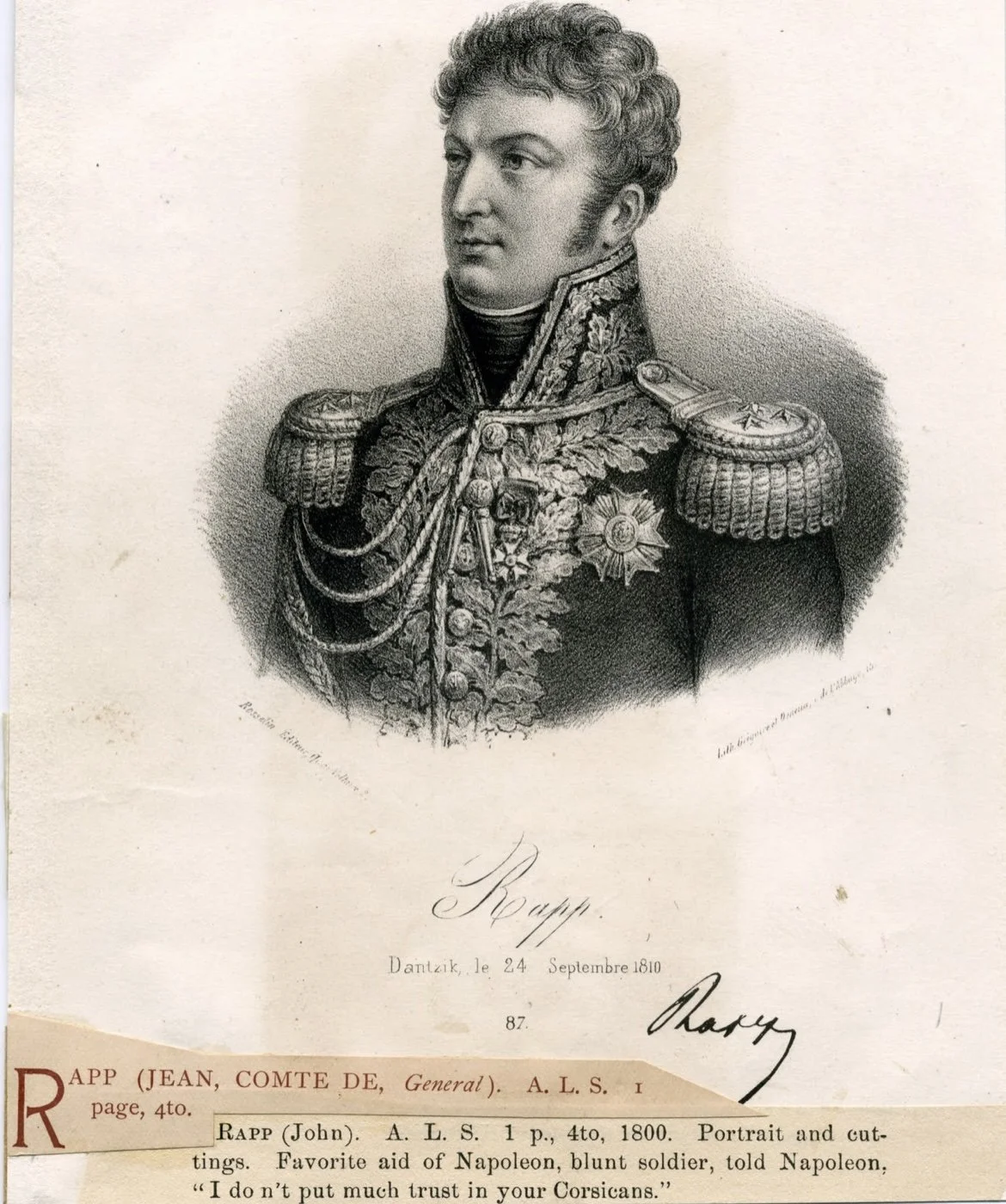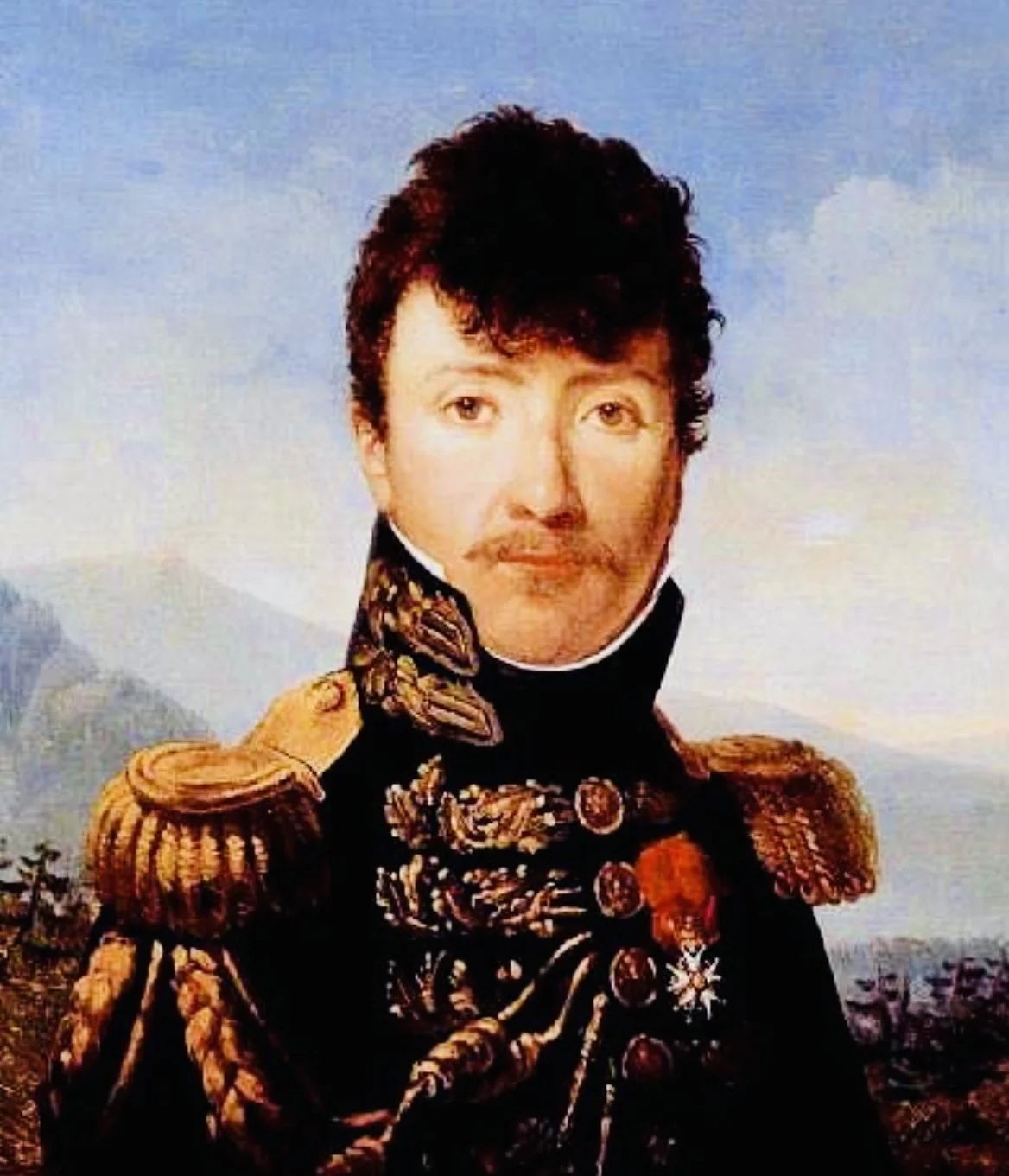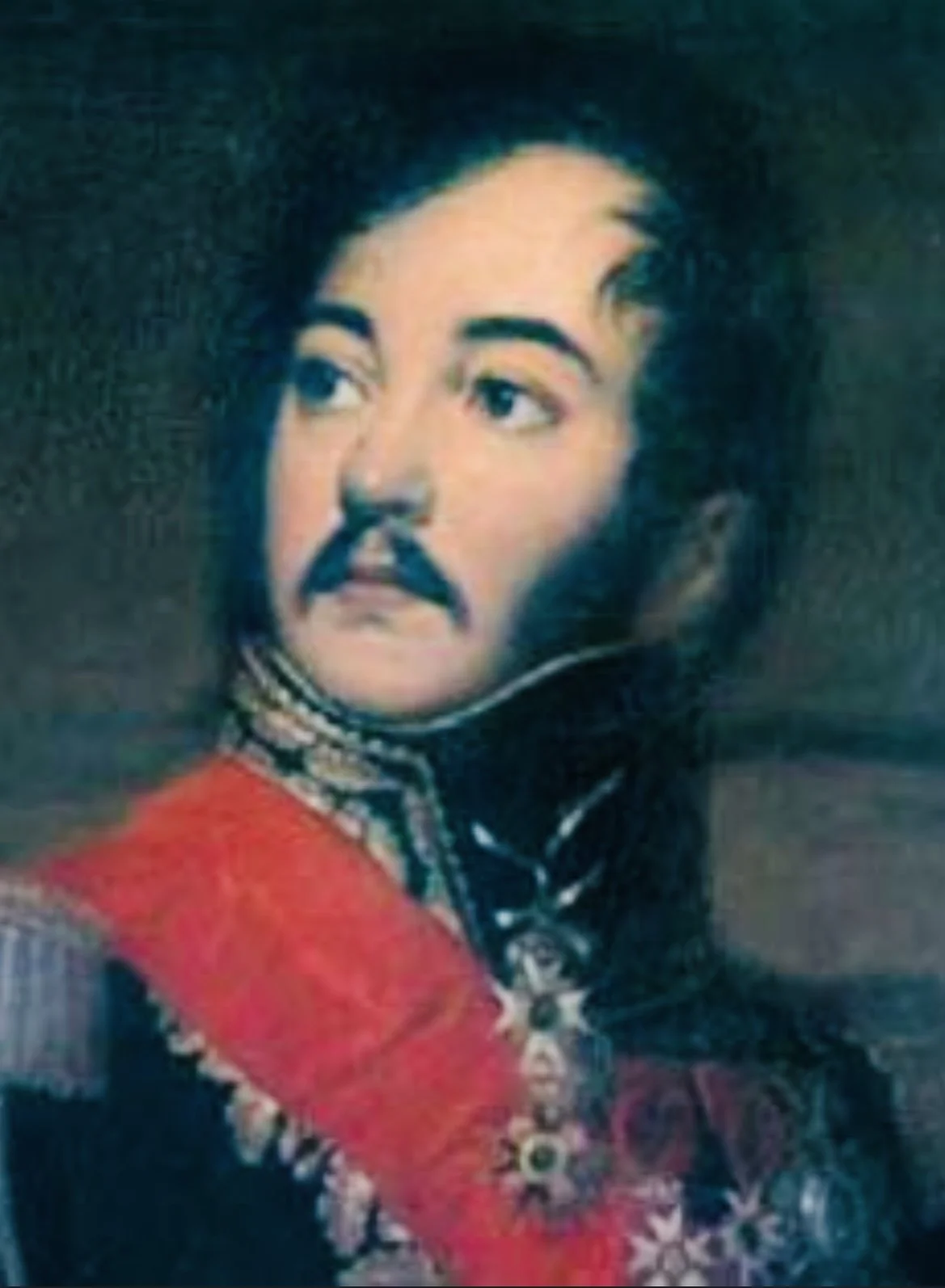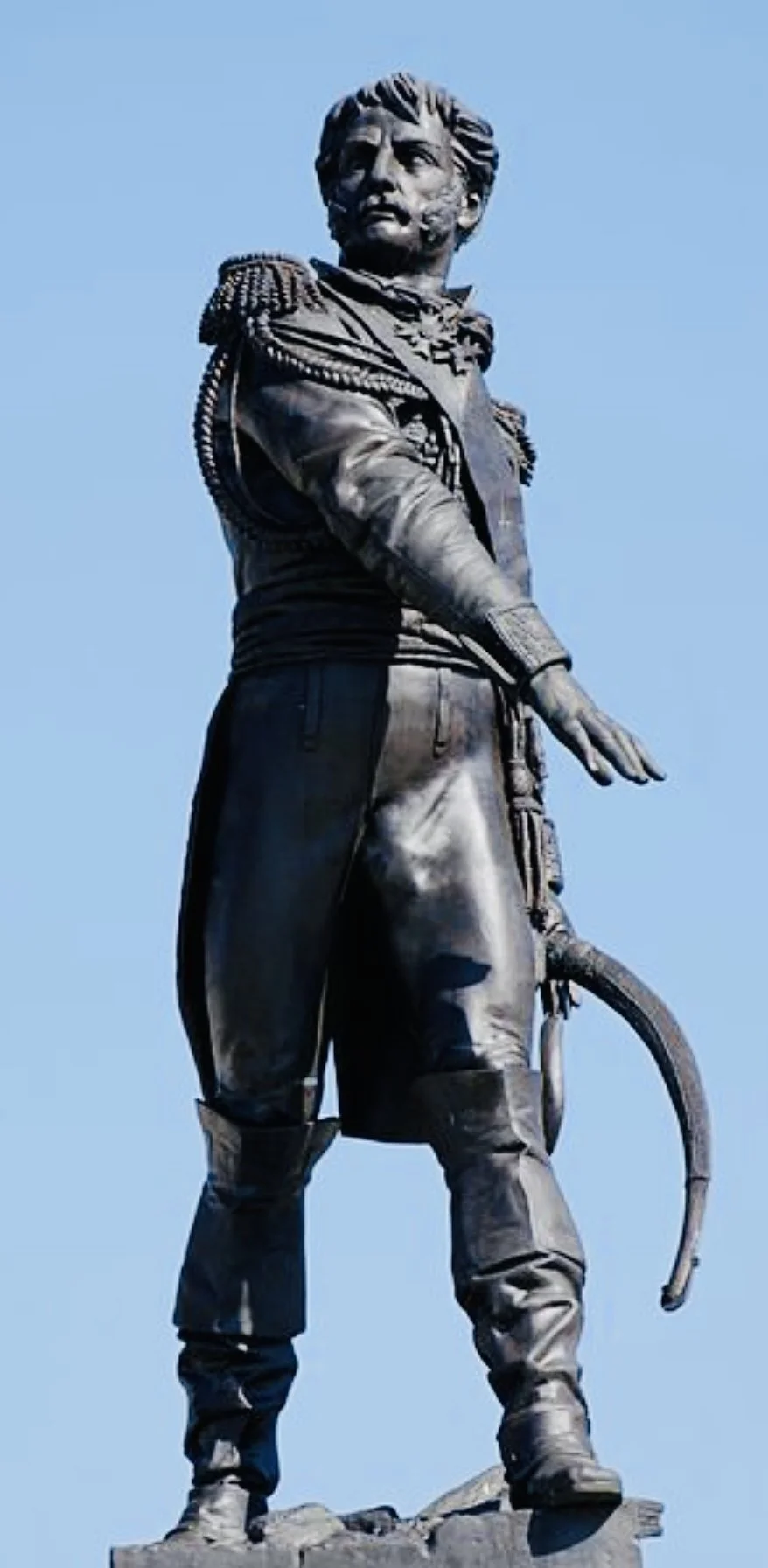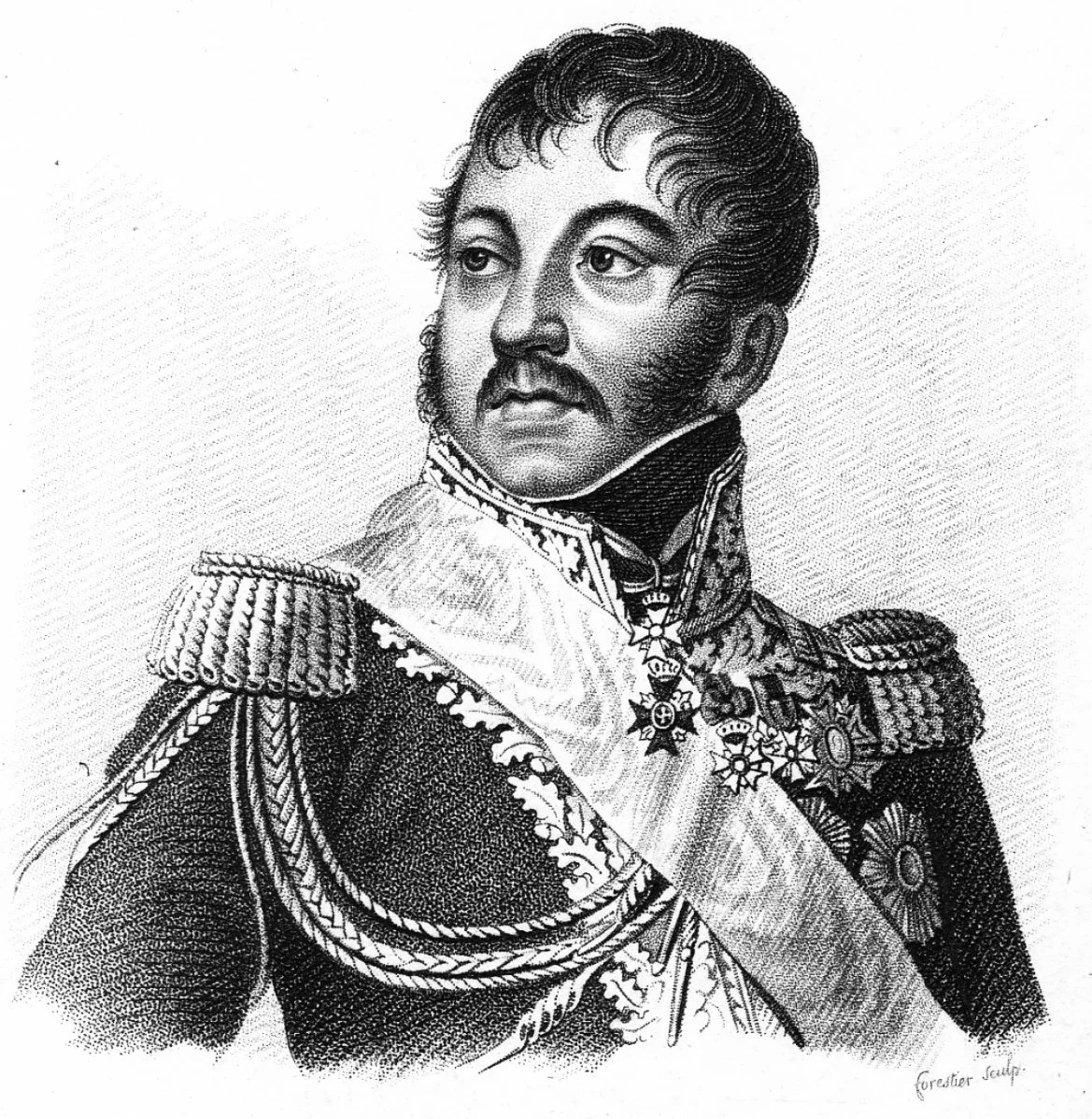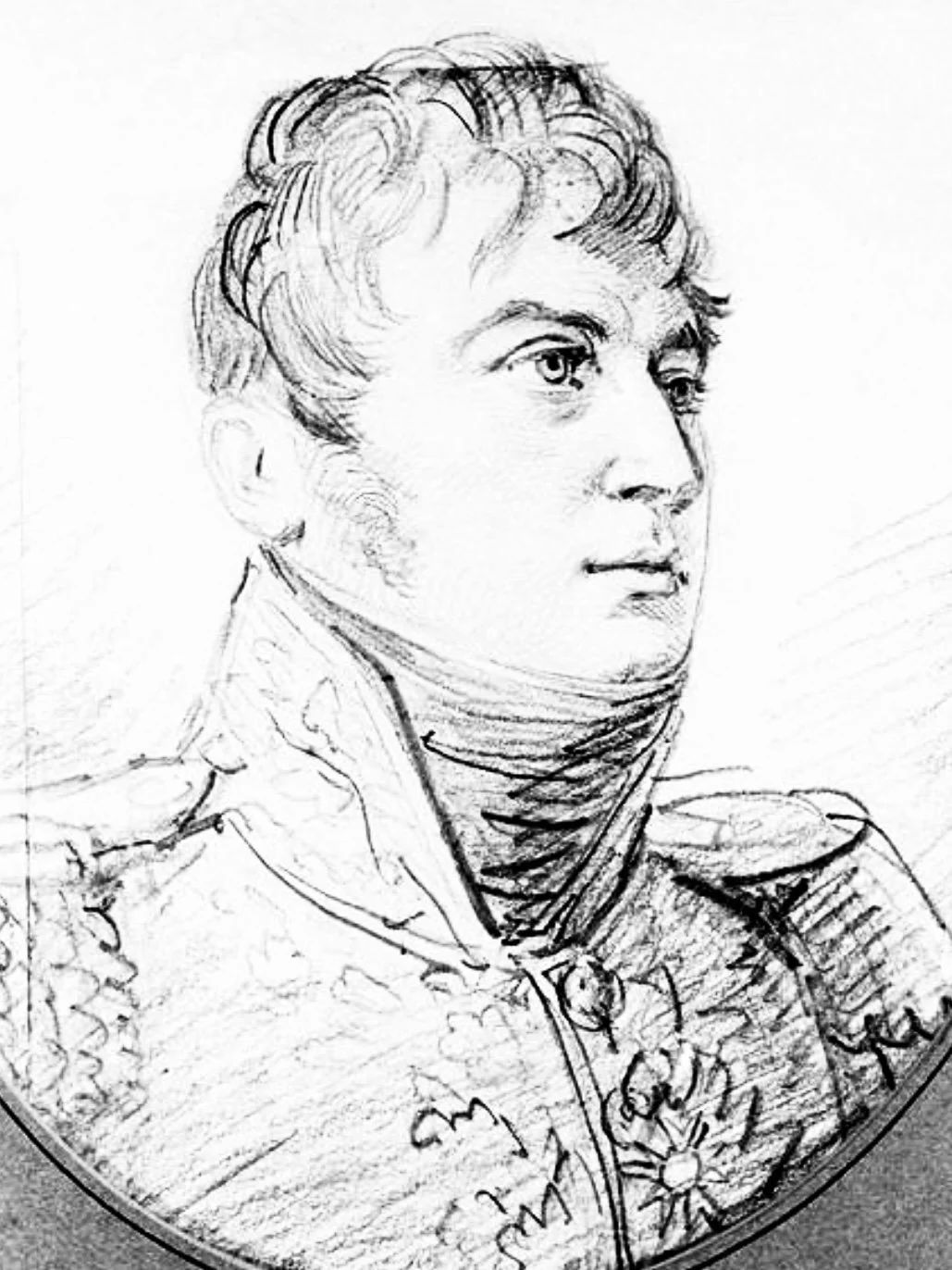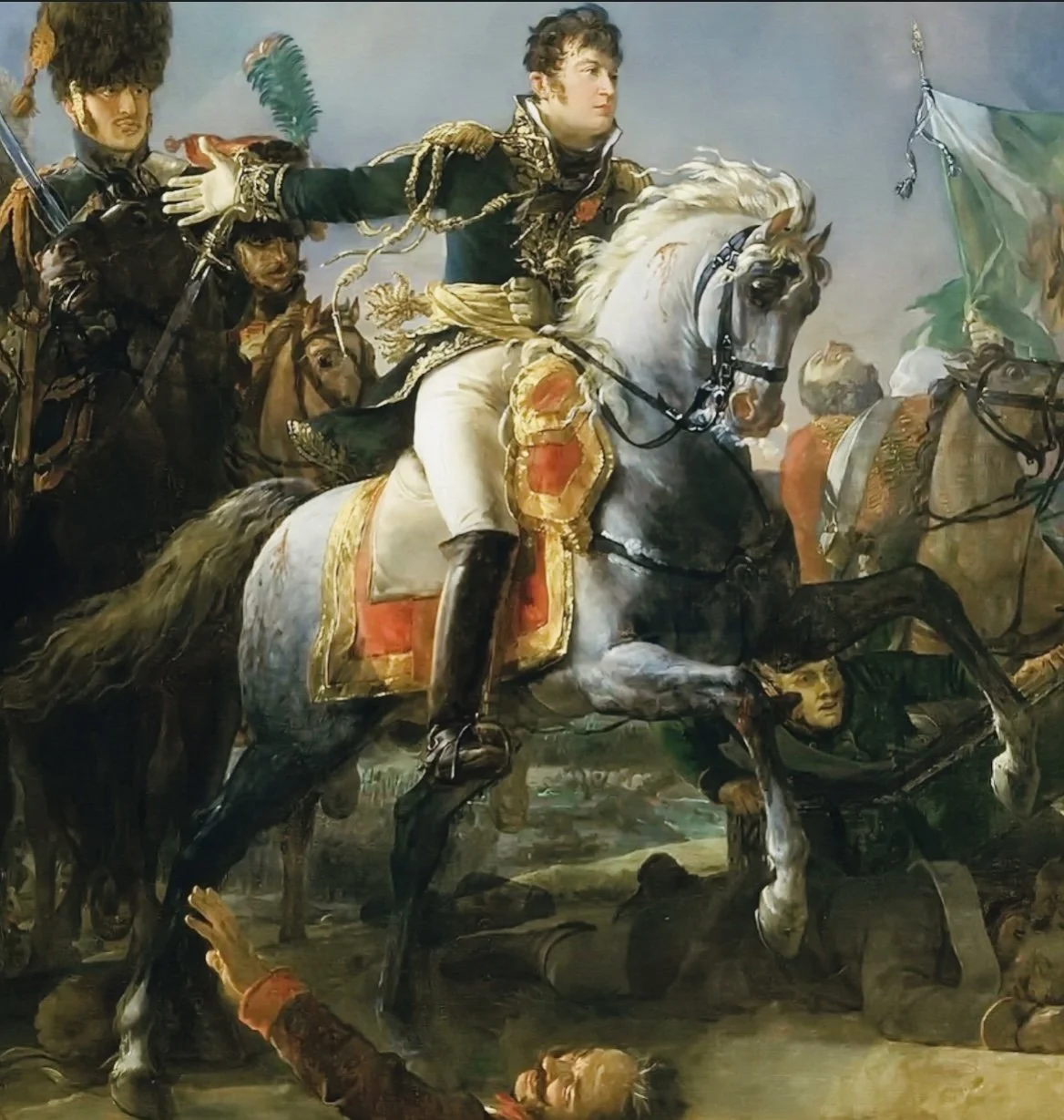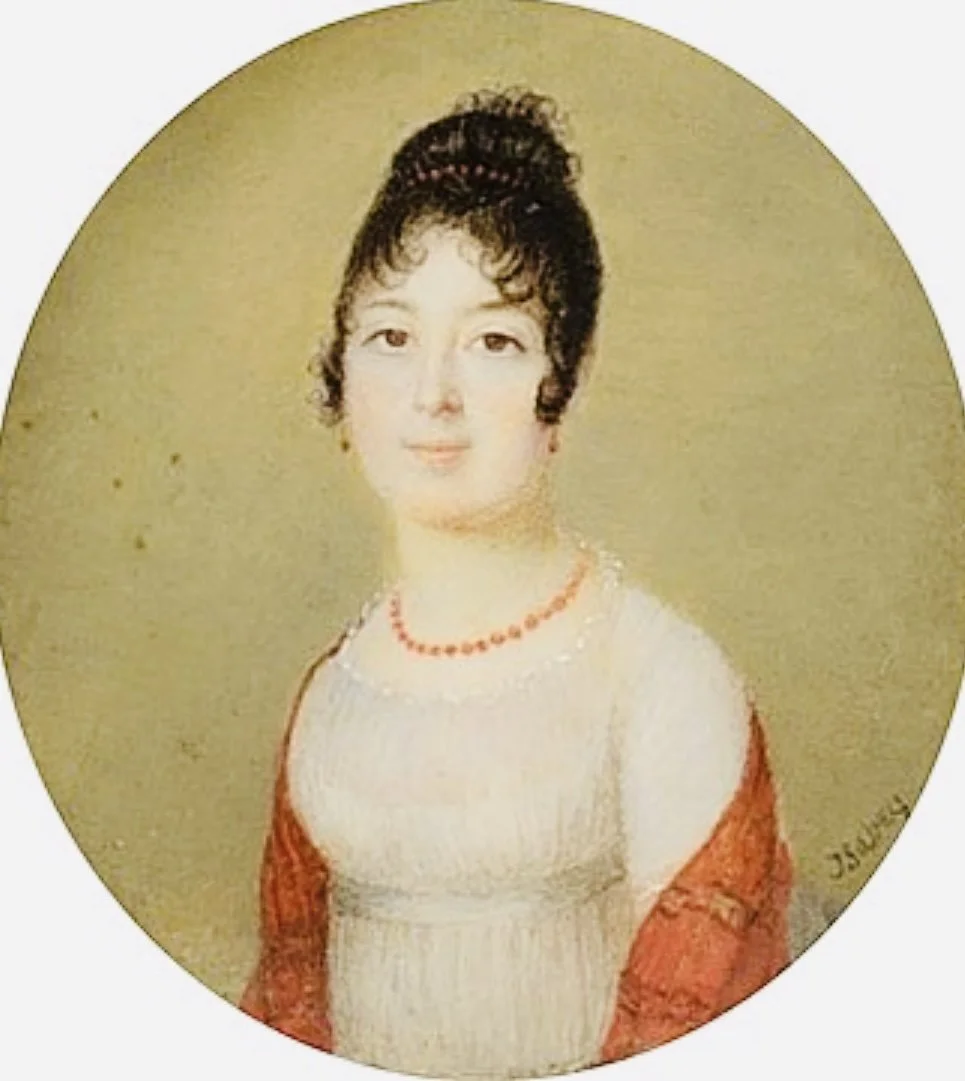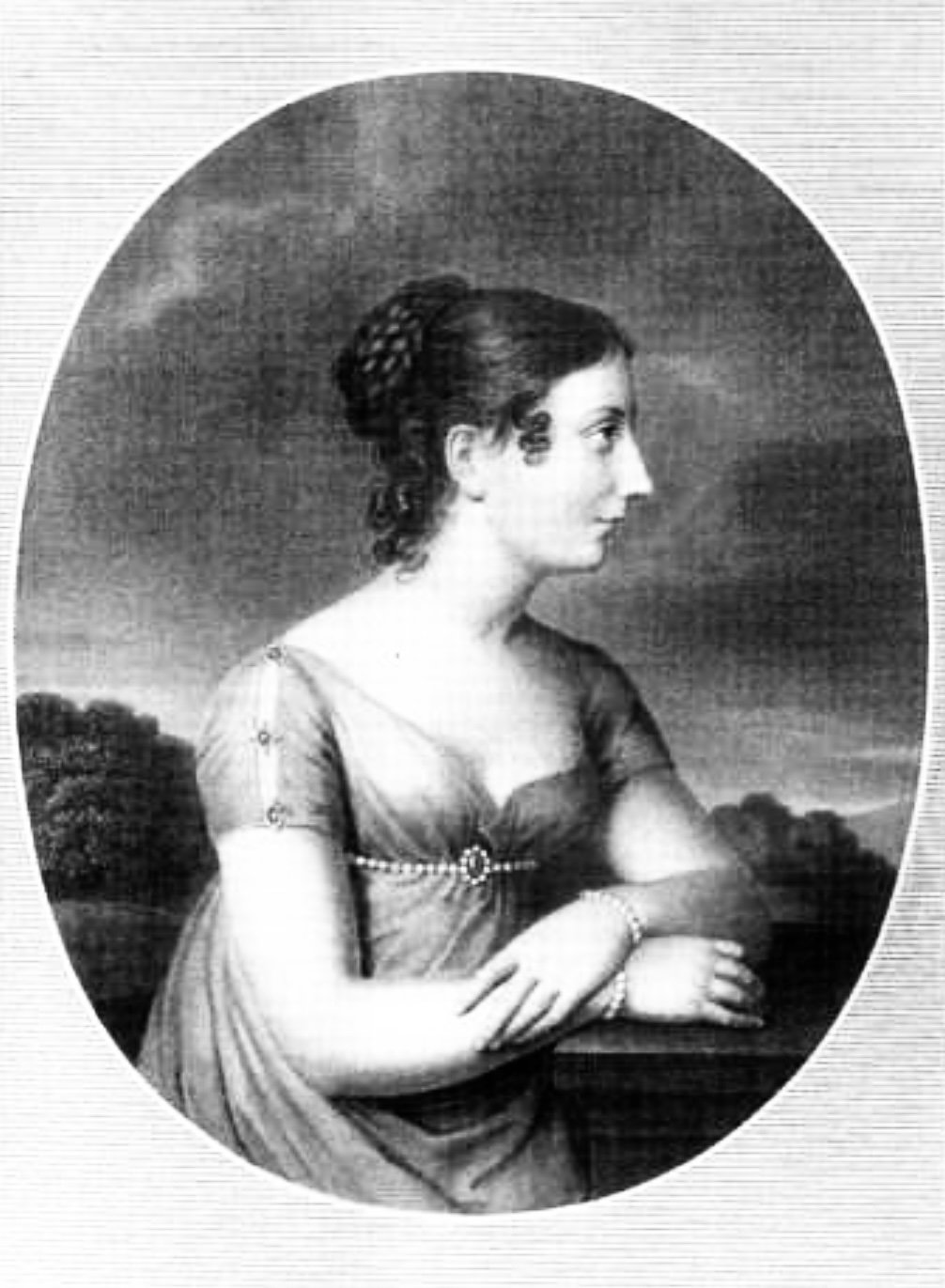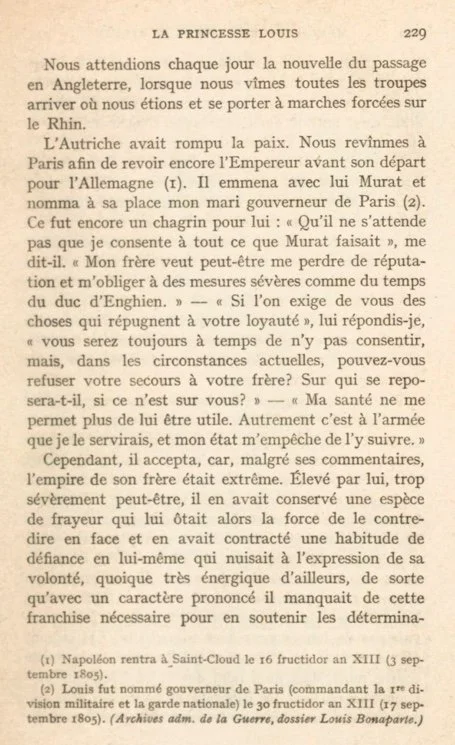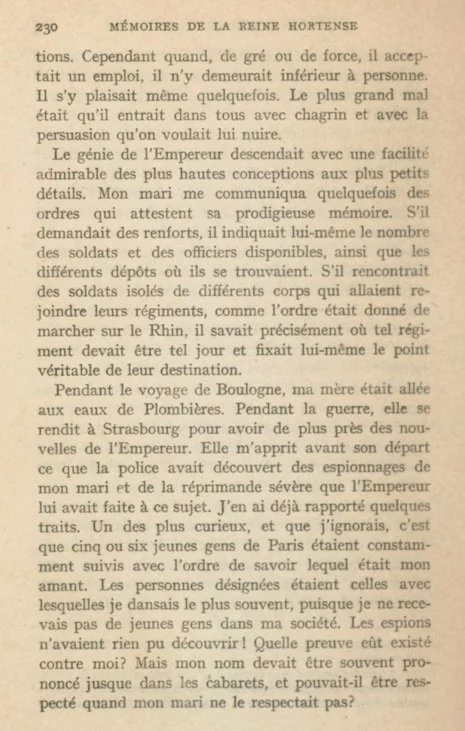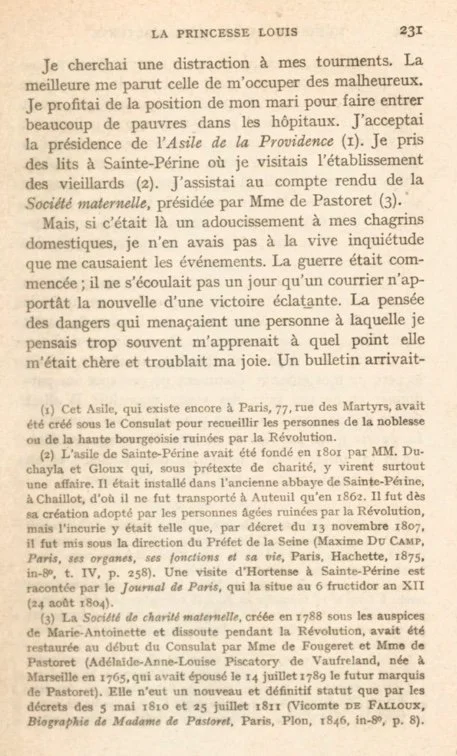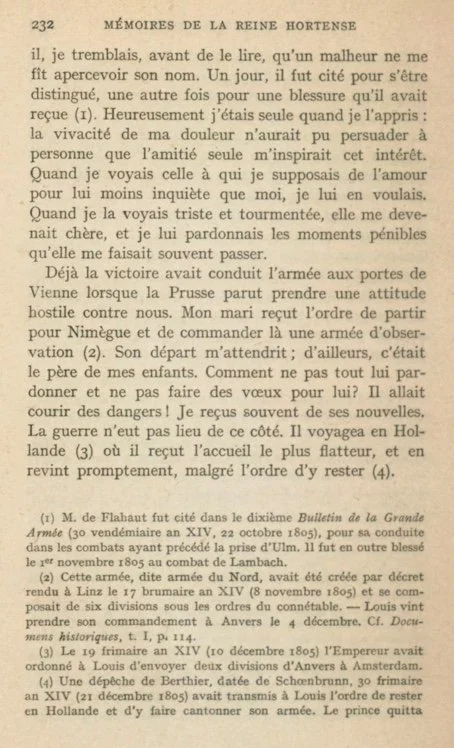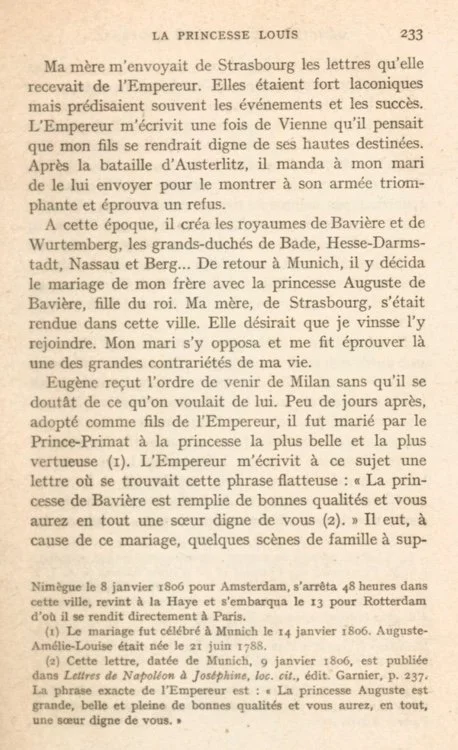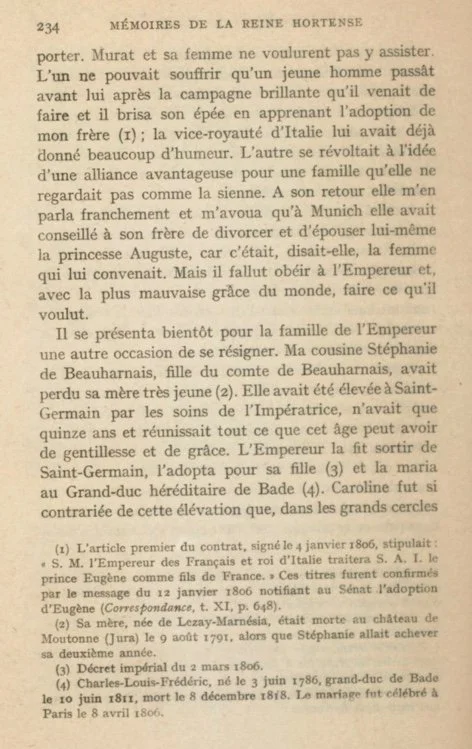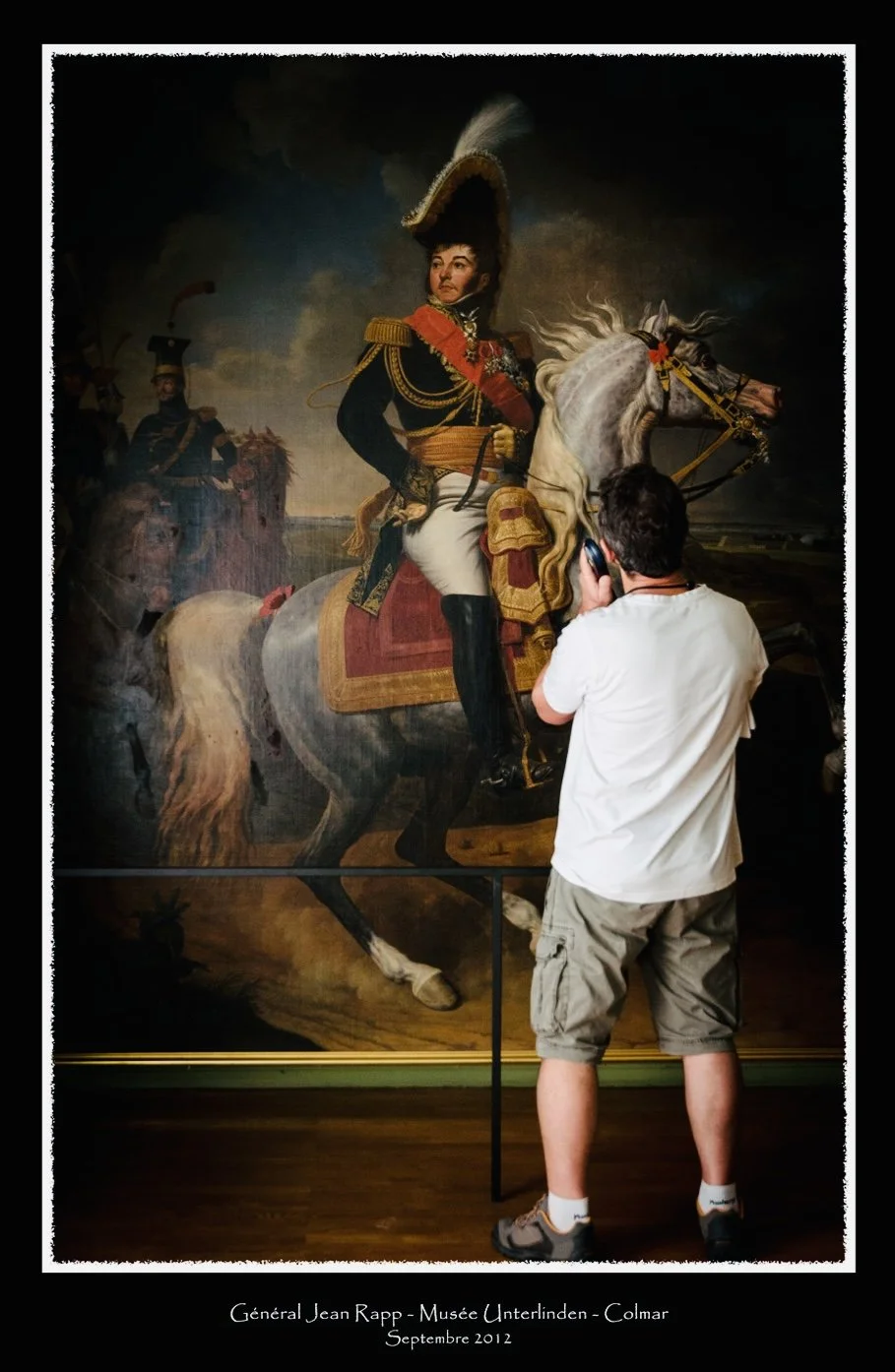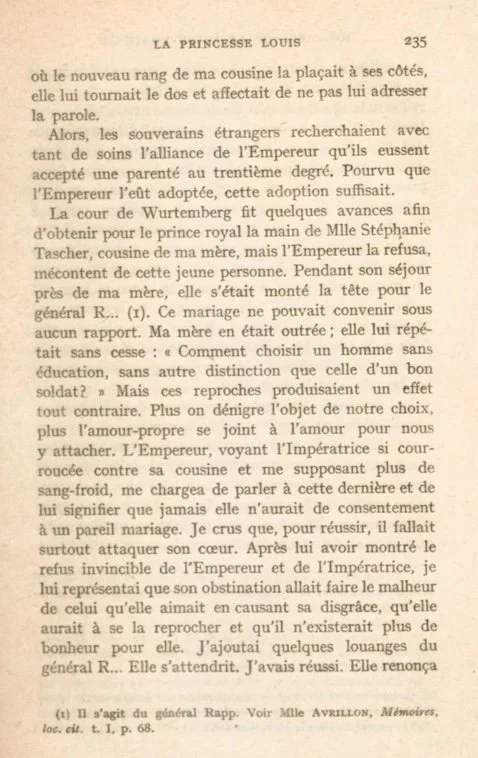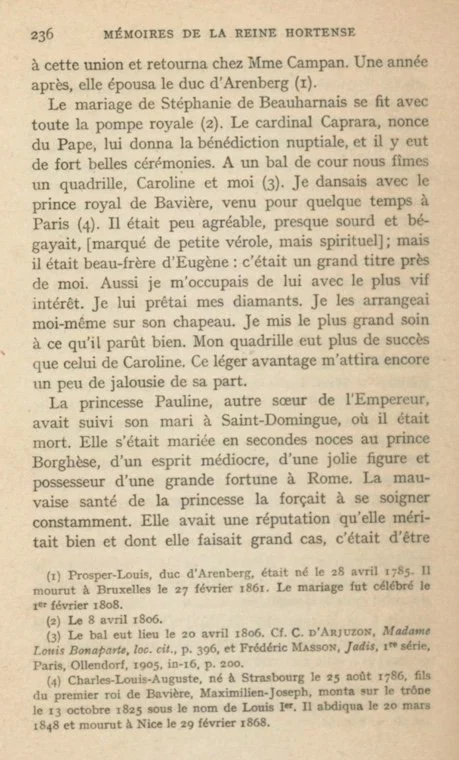Let’s have another look at Hortense’s Memoirs. If you want to read the book it is available for free at the side bar in English and French. Use the widget on the sidebar to translate the text below into pretty much any language.
In this excerpt, we see that there was a group behind the scenes who used war and acted as one to short circuit sovereignty in France.
Hortense’s memoirs continues:
I went through Dunkirk, and through Calais. Everywhere I saw handsome regiments pass by and I felt the more regret at leaving this brilliant army when I thought with terror that a few days later it was to be exposed to the most appalling dangers. On all my trips I had caught sight of Monsieur de Flahaut accompanying my carriage with the other officers. In the evening, also, when we were the guests of Caroline, we had sung together, but we had never been able to talk alone, although I was well aware that he was eager to speak to me.
I returned to Saint Amand delighted with my trip and full of the sights I had beheld. I described them in detail to my husband. He listened coldly to my account and was not in the least grateful to me for having preferred to return home rather than witness the naval combat.
The more enthusiastic I became in my narrative, the more annoyed he seemed to be. We were expecting daily to receive news of the crossing to England when we suddenly saw all the troops come back through the place where we were living, hurrying by forced marches to the Rhine.
Austria had broken the peace and declared war. We returned to Paris in order to see the Emperor before his departure for Germany. He took Murat with him and appointed my husband Governor of Paris in the place of Murat.
Louis was again annoyed. "He had better not expect that I shall agree to everything the way Murat did," my husband said to me. "My brother perhaps expects that I shall make myself unpopular as governor and adopt as stern measures as those employed to keep order in the days of the Duc d'Enghien."
If you are asked to do things that are distasteful to your sense of honor," I replied, "you can always refuse; but as things are at present how can you decline to help your brother?"
“My health does not allow me to make myself useful.
Otherwise I should be in the army, but I am not well enough for that." Nevertheless, Louis accepted the appointment. in spite of all his objections he was dominated by the Emperor's will.
It was Napoleon who had brought him up, perhaps somewhat too severely, and my husband had kept from his early days a sort of fear which prevented his contradicting the Emperor to his face.
As a result of his early training Louis lacked the self-confidence which would have allowed him to express freely his very decided nature. Consequently, although born with a determined will of his own, he lacked that incisive driving power needed to execute the decisions he made.
Yet when he did accept a post, he filled it well, better even than anybody else. He even sometimes came to like his new duties. His greatest handicap was the fact that whenever he took up a new thing he did so reluctantly and had a preconceived idea that people were against him.
The Emperor's genius showed itself in the smallest as well as in the greatest matters. My husband sometimes repeated to me orders he had given which showed his prodigious memory. If he asked to have reinforcements sent him he would himself indicate the number of officers and men available as well as the different points where they were stationed. If he met isolated soldiers belonging to different divisions on their way to join the regiments which were marching toward the Rhine, he knew exactly where each regiment was to be at a given day and indicated their eventual destination and how to reach it.
While I was at Boulogne my mother had been taking the waters at Plombières. During the war she went to Strasbourg to be in close touch with the Emperor. She informed me before her departure that the police had discovered my husband's spy system, and the Emperor had reproved Louis seriously in regard to it. I have already referred to it on different occasions.
The most curious fact, however, and one which I did not know at the time, was that five or six young men in Paris were constantly being followed in order to discover which one of them was my lover.
They were selected from among those with whom I danced the most frequently, as I never received any man at home. The spies had not been able to discover a single thing. What evidence could they have found against me? But it was likely that my name was frequently mentioned in low drinking-places where such informers gather. Was it likely to be spoken respectfully when even my husband did not respect it? I tried to find something that would distract my mind.
The best way seemed to me to be to succor those who were in need. I took advantage of my husband's position to have many poor people admitted to the various hospitals. I accepted the post of president of the Asile de la Providence; I took over several beds at the old people's home at Sainte Perine ; I attended the meetings of the Maternal Society presided over by Madame de Pastoret. But although these occupations provided relief from my worries, I was unable to find any surcease from the anxiety caused by public events.
War had begun. Not a day passed without the arrival of a messenger bringing news of some brilliant victory. The idea of the dangers which threatened the person of whom I thought all too often showed me how much I cared for him and dimmed my joy. When a dispatch arrived, I trembled lest it contain his name.
One day he was mentioned for distinguished conduct, another time for having received a wound. Fortunately, I was alone when I received the news. The acuteness of my emotion was too great to allow me to imagine that it was purely the result of a friendly concern for his safety.
When I saw the woman whom I believed to be in love with him apparently calmer than myself, I was furious with her. When I saw her sad and downcast, I felt attracted to her and forgave her the moments of anguish which she so often inflicted on me.
Our victorious troops had pressed forward up to the very gates of Vienna itself when Prussia assumed a hostile attitude toward us.
My husband received orders to go to Nimeguen and take command of an army of observation. His departure touched me, for after all he was the father of my children. How could I fail to forgive him and wish him Godspeed?
He was about to be in danger. I often received letters from him. War did not break out where he was stationed, and he traveled about in Holland. He received the most flattering attention but hastened to return home in spite of instructions to remain at his post.
My mother sent me the letters she received from the Emperor. They were laconic but often spoke of what was about to happen and the successful exploits of his troops. The Emperor wrote me once from Vienna that he expected my son to prove worthy of the lofty destiny which Fate held in store for him.
After the battle of Austerlitz, the Emperor asked my husband to have the little boy sent him so that he could show him to the victorious army. The request was refused.
About this time the Emperor created the kingdoms of Bavaria and Wurtemberg and the grand duchies of Baden, Hesse-Darmstadt, Nassau and Berg.
On his return to Munich he decided to marry my brother to the Princess Augusta of Bavaria, daughter of the King. My mother had left Strasbourg and joined the Emperor in Munich. She wished me to meet her there. My husband would not allow me to leave, and this refusal caused me one of the greatest disappointments I have ever experienced.
Eugene was ordered to go to Munich without knowing the reason for his journey. A few days later he was adopted by the Emperor as his son and married by the Prince-Primate to a most lovely and noble-minded princess.
On this occasion the Emperor wrote me a letter containing the following flattering sentence: "The Princess of Bavaria possesses many good qualities. You will find her in every way worthy to be a sister to you."
In connection with this wedding he had to face several family quarrels. Murat and his wife were unwilling to attend. Following his last brilliant campaign Murat would not suffer a younger man to take precedence at court over him. He broke his sword on hearing the news that the Emperor had adopted my brother.
Already Eugene's appointment as Viceroy of Italy had angered him greatly. Caroline was indignant over such an advantageous match for a family she did not consider related to her.
On her return she spoke to me frankly and admitted that at Munich she had advised her brother the Emperor to obtain a divorce in order to marry the Princess Augusta himself. The latter would have been just the wife for Napoleon according to Caroline. But she was obliged to obey her brother's commands and did so with the most obvious reluctance.
The Bonaparte family soon had another occasion to feel vexed. My cousin Stephanie de Beauharnais, daughter of the Count de Beauharnais, had lost her mother when still very young. She had been educated at Saint-Germain under the supervision of my mother. Now she was fifteen years old and possessed all the charm and grace that belong to that age.
The Emperor took her out of school, adopted her as his daughter, and married her to the hereditary Grand Duke of Baden. Caroline was so annoyed by this social advancement that at the state receptions, where my cousin, owing to her new rank, found herself beside the Princess Murat, the latter turned her back on her and pointedly avoided speaking to the new Grand Duchess.
At this time the foreign monarchs were so eager to secure an alliance with the Emperor that they would have accepted a relative of his even in the thirteenth degree. So long as the Emperor was willing to adopt such a relative this adoption was more than sufficient.
The Court of Wurtemberg made certain proposals in view of marriage between the Crown Prince and my mother's cousin Mademoiselle Stephanie Tascher, but the Emperor refused, not being pleased with that young woman's conduct. While she was staying with my mother, Stephanie had lost her head over the General Rapp. Marriage between them was entirely out of the question.
My mother was indignant about it, repeating constantly, "How can anyone choose a man without education or any sort of distinction except that of being a good soldier?" But these objections proved useless. The more people seek to belittle the object of our affections, the more our pride increases our attachment to him.
Stephanie Tascher
The Emperor, seeing how indignant the Empress was with her cousin and believing that I could reason more calmly, had asked me to speak to Stephanie and inform her that he would never consent to such a marriage. I thought the best means of changing her mind was to appeal to her heart.
After emphasizing the inflexible refusal of the Emperor and the Empress to consent to the marriage, I had shown her how obstinacy on her part would lead to the unhappiness and disgrace of the man she cared for, how she would be responsible for this state of things and consequently, would also be miserable. I had added some words of praise regarding General Rapp. Stephanie had been touched by my arguments. I had succeeded.
She gave up all ideas of this marriage, returned to Madame Campan's school, and a year later became the wife of the Duc d'Arenberg. The marriage of Stephanie de Beauharnais took place with truly royal splendor. Cardinal Caprara, Papal Nuncio, pronounced the nuptial benediction and magnificent ceremonies took place.
The original French is available below:

